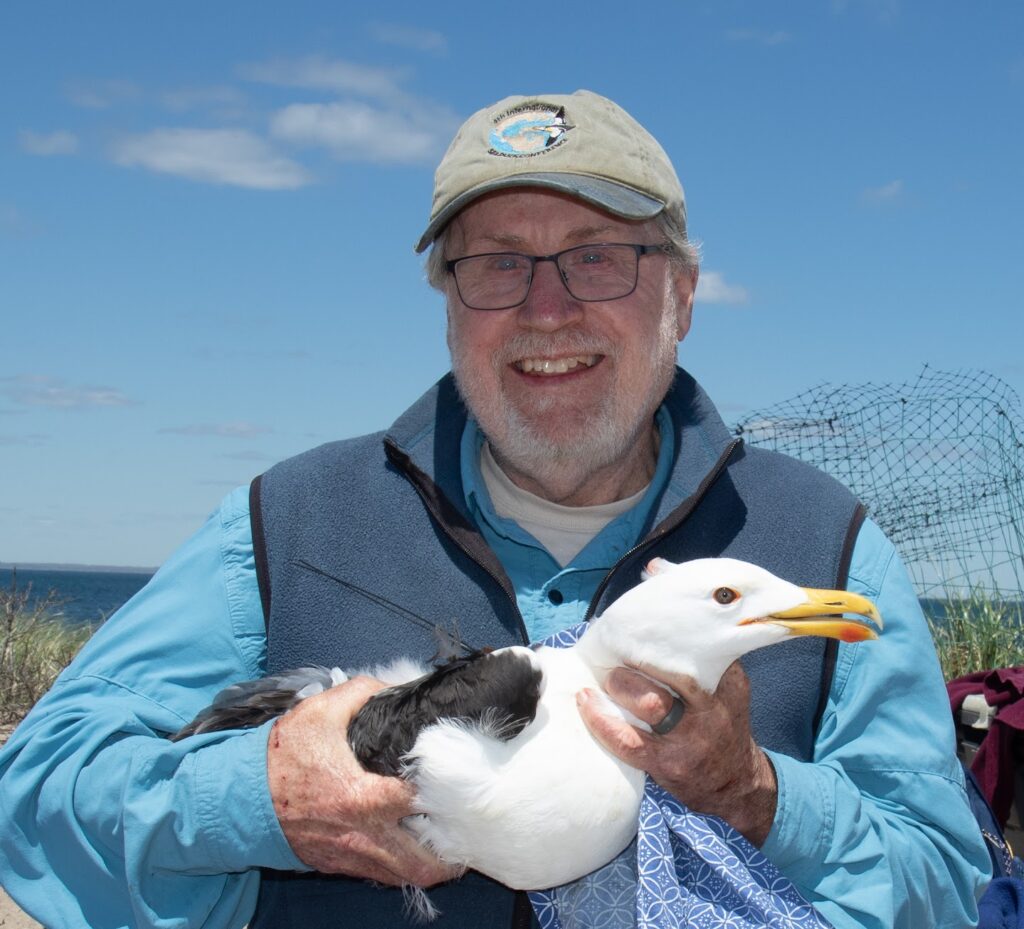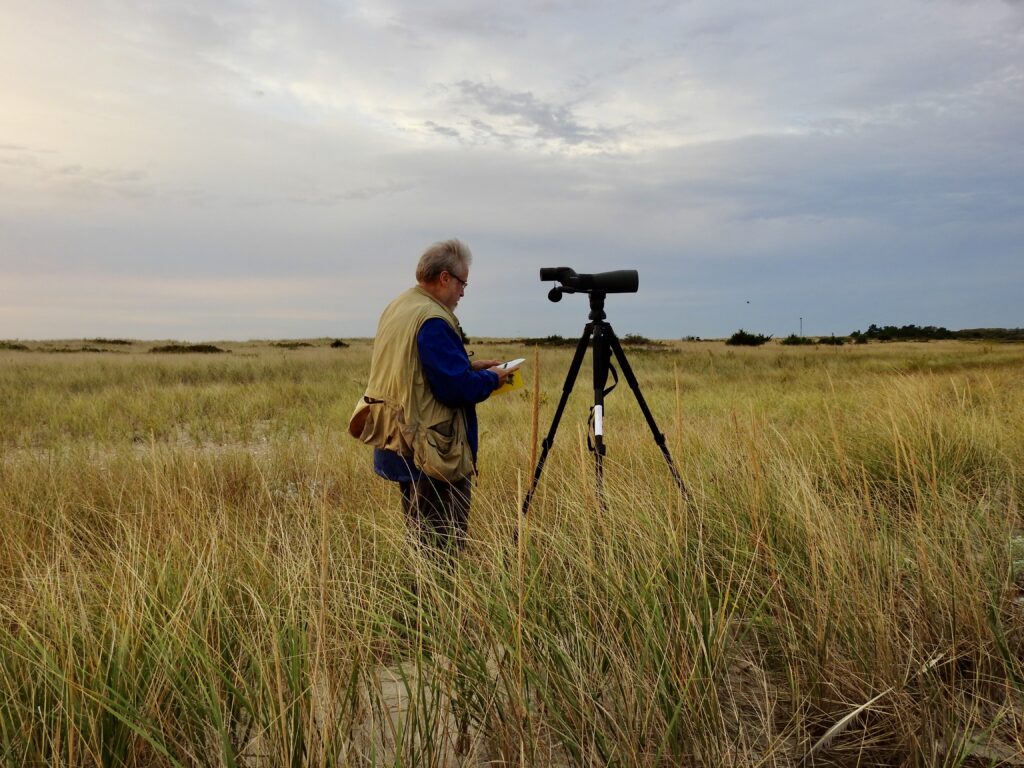
Throughout his career, including the past nearly 30 years at the University of Rhode Island, Peter Paton has been a leading researcher, influential teacher, and well-known naturalist. Paton received his Ph.D. in wildlife biology from Utah State University, his M.Sc. in wildlife biology from Colorado State University, and his B.A. from Lewis & Clark College. He worked as a federal wildlife biologist and contract biologist for 10 years before joining the URI faculty in 1995. He studies the conservation biology and natural history of wild vertebrates with an emphasis on threatened and endangered species.
Peter Paton’s research is strongly rooted in an understanding of the natural history of wild vertebrates and its application to conservation and management of populations. His research focuses on themes including management of threatened and endangered species, mostly amphibians and birds; conservation of Neotropical migratory songbirds; quantifying the impact of saltmarsh restoration on local bird populations; effects of offshore energy development on sea ducks and seabirds; and distribution and abundance of birds in Rhode Island during the breeding, migratory, and wintering period of the annual cycle. His enthusiasm for fieldwork is infectious, and he has developed effective collaborative relationships with a wide variety of agencies and non-governmental organizations that ensure the most productive outcomes.

Two especially important projects of Paton’s demonstrate his top notch natural history skills and scientific acumen. First, he co-led and coordinated a 10-year study of the distribution, abundance, and movements of the five common species of sea ducks that inhabit the coast of the Northwest Atlantic. This work was inspired by the development of the first offshore wind turbines in U.S. waters, off Block Island, and it has led to a much deeper understanding of the ecology and conservation of these socially and economically birds. Second, Paton, with the Rhode Island Department of Environmental Management, lead the second Rhode Island Bird Atlas project from 2016-2020. The Bird Atlas has determined the distribution and abundance of all Rhode Island birds during the breeding, migratory, and wintering periods of their annual cycles. This project involves conducting point counts, radar surveys, line transects, bird banding, and the application of spatially-explicit models to estimate distribution and abundance. This project galvanized hundreds of Rhode Islanders, as community scientists, to help gather the necessary data.
Peter Paton has educated thousands of students in the basic ecology of wild vertebrates and how this applies to their conservation. He teaches two important, popular courses (Field Ornithology and Wetlands Wildlife Management) for the Wildlife & Conservation Biology track as well as several graduate-level special topics courses. Paton’s philosophy and practice of teaching ensure a beneficial mix of hands-on labs and content-based learning as well as training outside of the classroom through the URI Wildlife Society, his field labs, and his regular involvement in mentored research projects. Those who has taken his courses know that Paton is a dedicated teacher who fully engages with his students. He has earned our College of Environment & Life Sciences Teaching Award in recognition of these talents.
Finally, in addition to his work with other scientists and students, Peter invests much time in helping the community from throughout the region engage with and develop a deeper appreciation for nature, including through walks and talks for organizations such as the Rhode Island Wild Plant Society, Watch Hill Conservancy, and local land trusts; his many media interactions, such as interviews explaining the sudden arrival of numerous snowy owls in Rhode Island; and his service on the board of directors of the Rhode Island Natural History Survey, including a term as its president. Paton’s excitement for nature is infectious. Seeing him just as excited about his 10,000th yellow warbler or his 100,000th wood frog tadpole, as he probably was about his first, never fails to thrill the members of the public with which he is engaging.
Dr. Paton is extraordinarily dedicated to the profession of wildlife scientist, to the university, to his colleagues, his students, and the broader Rhode Island community, and is a worthy recipient of the Rhode Island Natural History Survey Distinguished Naturalist Award.
—adapted from a nominating letter signed by three of Paton’s URI colleagues, Scott McWilliams, Nancy Karraker, and Art Gold.